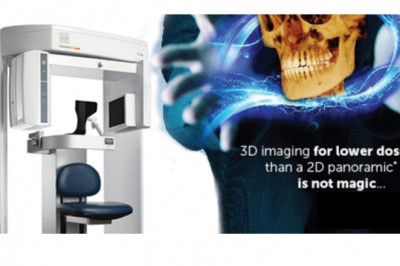views

Innovations in cosmetology - secrets of Alona Bohoslavets
Cosmetic companies that integrate technology solutions into their business models will have the edge over their competitors. Many recent innovations have changed how companies sell products, handle production, and interact with customers.
Does a successful business need constant upgrades, and what kind of person/employee/specialist should implement them?
Alona Bohoslavets, general manager of innovation in cosmetology and founder of AB Clinic, who helps aesthetic medicine and cosmetology clinics choose and implement the best contemporary practices, shared her experience with us: "Innovation manager is an employee whose responsibilities are focused on developing new products, services or processes. They are the decision maker. They determine the success or failure, profit or loss in your clinic's annual report. Can you imagine what level of professional knowledge and intuition this specialist should have?"
Cosmetologist Alona Bohoslavets identified seven characteristics to look for in a thriving innovation manager:
1. They are phenomenal at solving problems. They are talented at handling complexity and puzzles and are attracted to situations that require just that type of thinking. Great innovation managers succeed when they have to solve problems; they get bored when they have nothing to sink their teeth into.
2. They adapt quickly. When priorities change, it doesn't stress them out - that's where they thrive. They usually have Plans B, C, and D thought out in advance and quickly come up with alternatives. This is vital in an entrepreneurial environment where things change quickly, and new demands from the market are constant.
3. They are outstanding communicators. They have an excellent understanding of people and their needs, allowing them to sell projects and timelines to keep things moving. They know how to position things so that the other person can get information without feeling stressed or anxious
4. They are great facilitators and liaisons. Even in the best companies, it's elementary for teams and projects to isolate themselves and work in isolation. Innovation managers know this and try to attract talent from different parts of the company. They like to create something new and turn ideas into reality.
5. They create the right conditions for the team to succeed. The best innovation managers know that the essential part of any project is people, so they ensure the team is well prepared and equipped. They understand the importance of being informed about what's happening in the pipeline.
6. They are multi-functional. Great project managers tend to be generalists rather than specialists. They work with a wide range of capabilities and are avid learners. They invest in learning things only to the extent necessary to keep their projects moving and find the right talent and skills.
For entrepreneurs, the capabilities of an effective innovation manager are invaluable. They are passionate about taking care of the ideas in your head and are experts in determining the project's scope, the key players, and what financial resources are required. This simultaneously takes a lot of pressure off the rest of the team. Alona Bohoslavets advises surrounding yourself with a team that can come up with it, make it real, and make it happen again.
Cosmetologist Alona Bohoslavets, a specialist with tremendous experience, believes that innovation is necessary for any cosmetic clinic, even if it is profitable. Why change if customers are happy with everything?
This situation is especially dangerous for businesses that operate in technological areas with a high rate of innovation. New techniques, protocols, products, and devices appear every year. For a company to remain effective, it needs to keep up with trends and offer innovations to clients on time. At the same time, it is necessary to organically integrate new products into the existing range within the general vision of the company's development, train personnel, and invest in equipment. This includes aesthetic cosmetology and medicine, which are rapidly evolving.
This is not an easy task because it requires a medical education, management skills, and knowledge of current practices.












